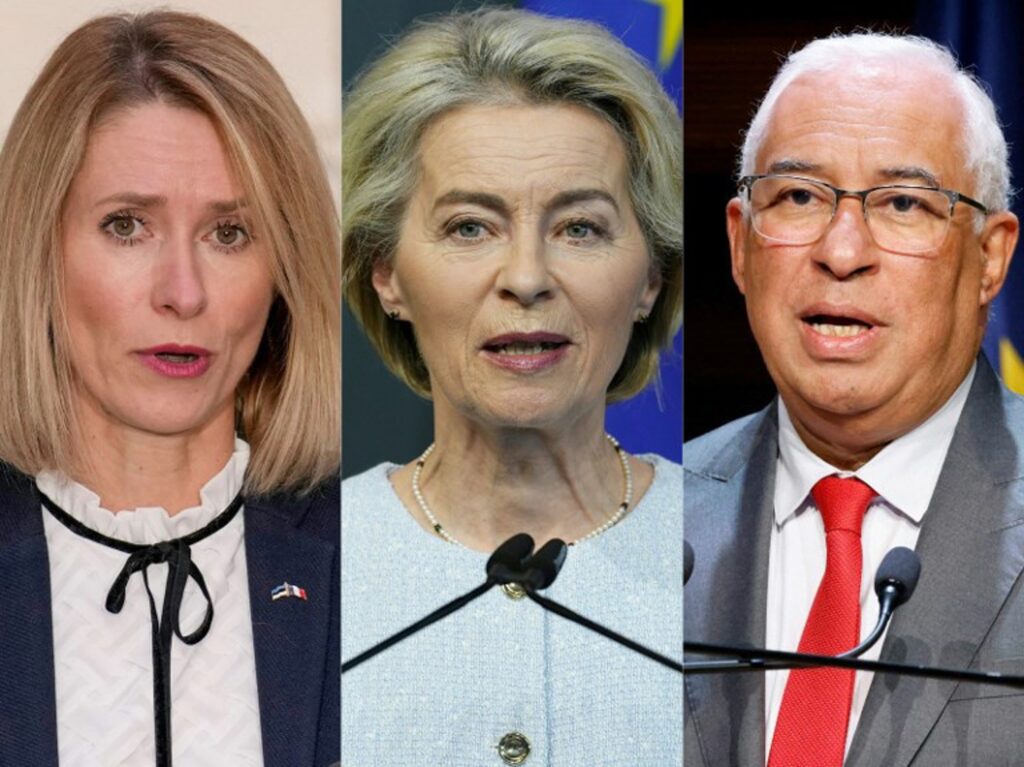Late on Thursday night, the German conservative Ursula von der Leyen was nominated for a second five-year term at the helm of the European Commission, with former Portuguese Prime Minister António Costa set to lead the European Council and the Estonian Prime Minister Kaja Kallas will head EU diplomacy.
Von der Leyen, representing the right-wing European People's Party (EPP) has been nominated to take on the role of President of the European Commission for another five years by the EU heads of state and government at the European Council summit in Brussels on Thursday evening.
"Next, the proposed candidate for President of the European Commission will need to be elected by the European Parliament by a majority of its component members," a statement on the European Council website read. A vote is possible on 18 July in Strasbourg, according to the President of the European Parliament Roberta Metsola.
Michel's successor
The distribution of the EU's top jobs – in other words, who will lead the main EU institutions – following the European elections on 9 June, was the main focus of the summit,
These included the appointment of Charles Michel's successor at the head of the European Council, the EU's institution which reunites heads of state and government and provides the union with general political directions and priorities and acts as a collective presidency.
Former Portuguese Prime Minister António Costa, a member of the Socialist Group (S&D), was elected for this role and will automatically succeed Michel this year. The term of office, due to begin on 1 December, is two and a half years, renewable once.
"I will be fully committed to promoting unity between the 27 Member States and I will focus on implementing the strategic agenda, which the European Council approved today and which will provide guidelines for the European Union for the next five years," said the 62-year-old Portuguese. Among his thanks, he cited Charles Michel "for his immense commitment to the EU."
Replacing Borrell
Finally, the Brussels summit was due to appoint the next head of EU diplomacy as the High Representative of the European Union for Foreign Affairs and Security Policy for the European External Action Service (EEAS) – the role to succeed the Spanish Socialist Josep Borrell.
After Estonian Prime Minister Kaja Kallas (Renew Europe, Liberal) was appointed to the post, said she was honoured to be given the job, which has "an enormous responsibility at this time of geopolitical tension". She also vowed to promote unity across the EU.
As this post is a joint responsibility of the Council and the Commission, it is subject, like all other members of the Commission, to a vote of approval by the European Parliament, following a hearing. Her formal appointment also requires the agreement of the president-elect of the European Commission.
"The Commission president, the high representative and the other Commissioners will, as a body, be subject to a vote of consent by the European Parliament before their formal appointment by the European Council," the European Council statement read.
All three nominees are part of the centrist alliance that has worked together in the European Parliament in recent legislative terms. This distribution of all three roles ratifies a pre-agreement, which has been dubbed a "backroom deal", reached on Tuesday by six EU heads of state and government representing the EPP, S&D and Renew, the three European political families called upon to support the Von der Leyen II Commission.
However, the choice was contested by two far-right leaders, Italian Prime Minister Giorgia Meloni and her Hungarian counterpart Viktor Orbán, but they had no right of veto. Meloni abstained on Ursula von der Leyen and voted against António Costa and Kaja Kallas, while Orbán voted against the German, abstained on the Estonian and voted for the Portuguese
At the meeting, EU leaders also adopted the strategic agenda for 2024-2029, a policy plan that steers the EU's future direction and goals.
The heads of state also adopted conclusions on Ukraine, the Middle East, security and defence, competitiveness, migration, the Black Sea, Moldova, Georgia, hybrid threats, the fight against antisemitism, racism and xenophobia and a roadmap on internal reforms.

